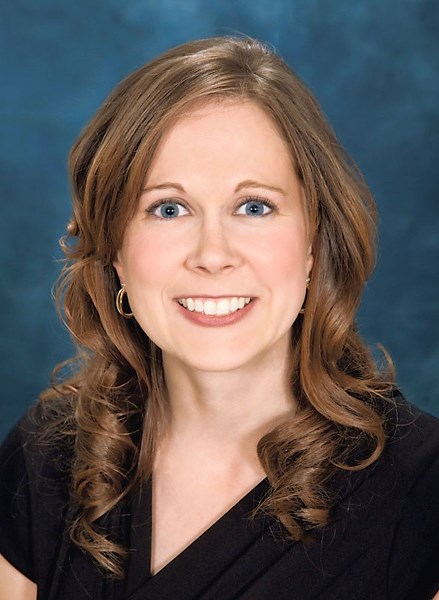When Lisa Holmes first ran for office, she didn't think she would win. She'd thrown her hat in the ring after attending a council meeting and not seeing anyone who represented her views as a young mother.
"I didn't expect to win. I just wanted to have a conversation and put some ideas out there," said the Morinville mayor.
Now after seven years in politics, she's hoping more women will follow her lead.
"Politics is a fantastic place to serve and see your ideas come to fruition," she said.
Holmes was one of four politicians who took part in a women in municipal politics panel Monday at Government House. The panel, which was broadcast live online, was the last in a series of such panels organized by Status of Women Alberta as part of the Ready For Her initiative.
The Ready For Her campaign is a series of videos and guides meant to encourage more women to run in this fall's municipal election, Holmes said in an interview.
"We do need more women elected in the province municipally," she said, and she strongly supports this campaign's goals.
Women make up about a quarter of Alberta's municipal politicians despite representing about half its population, Alberta Status of Women reports.
How to run
CTV Edmonton News host Erin Isfeld led Holmes, Alberta Status of Women Minister Stephanie McLean, political consultant Catrin Berghoff and former Edmonton council candidate Nav Kaur through an hour of questions on what women should know before running for office.
Many women think they aren't skilled enough to run for office, but that's not true, McLean said.
"We had a premier who was a football player," she noted.
"It doesn't take a doctorate in sociology to be an effective representative of your community."
But you do need authenticity, as you won't last long if you try to be something you're not, Holmes said. You'll also need to gather a network of supporters to keep your morale up in the tough times.
Running for office starts with community involvement, McLean said. If you're a community volunteer or a member of the PTA, you've been campaigning without even realizing it.
Next, you need to figure out your core values, Berghoff said. Nail these down, and you'll be much better at answering questions on the fly. Share your vision and ideals with others with enthusiasm, and you'll soon draw the volunteers you need to run a campaign.
You want competent people who share your values rather than political experts on your team, Berghoff added.
"It's not rocket science to win a campaign. It's hard work," she said, and that means you need reliable supporters.
You'll need about $12,000 to run for office in a rural community nowadays, Holmes estimates. Having a friend ask people for donations on your behalf can help if you're not comfortable asking for money.
Expect to spend at least three nights a week door-knocking and campaigning in your office run, and more in the final two weeks, McLean said. Be ready to ignore trolls on social media, as any time you spend talking to them is time wasted.
"I am a big fan of the 'mute' button on Twitter," she said, especially when it comes to anonymous bullies.
And keep an eye on your family, the panelists said. Holmes said she did not realize initially that her kids were just as nervous about the outcome of the election as she was. She advised candidates to be up front with their children about the stress and emotions they might encounter in a campaign.
Holmes said politics has been the most rewarding job in her life, as it lets her make changes that will affect her kids. She encouraged people to contact her directly if they are thinking about running this fall.
"Your community needs you."
Albertans have until Sept. 18 to declare their candidacy for the fall election. Visit readyforher.alberta.ca for details.




